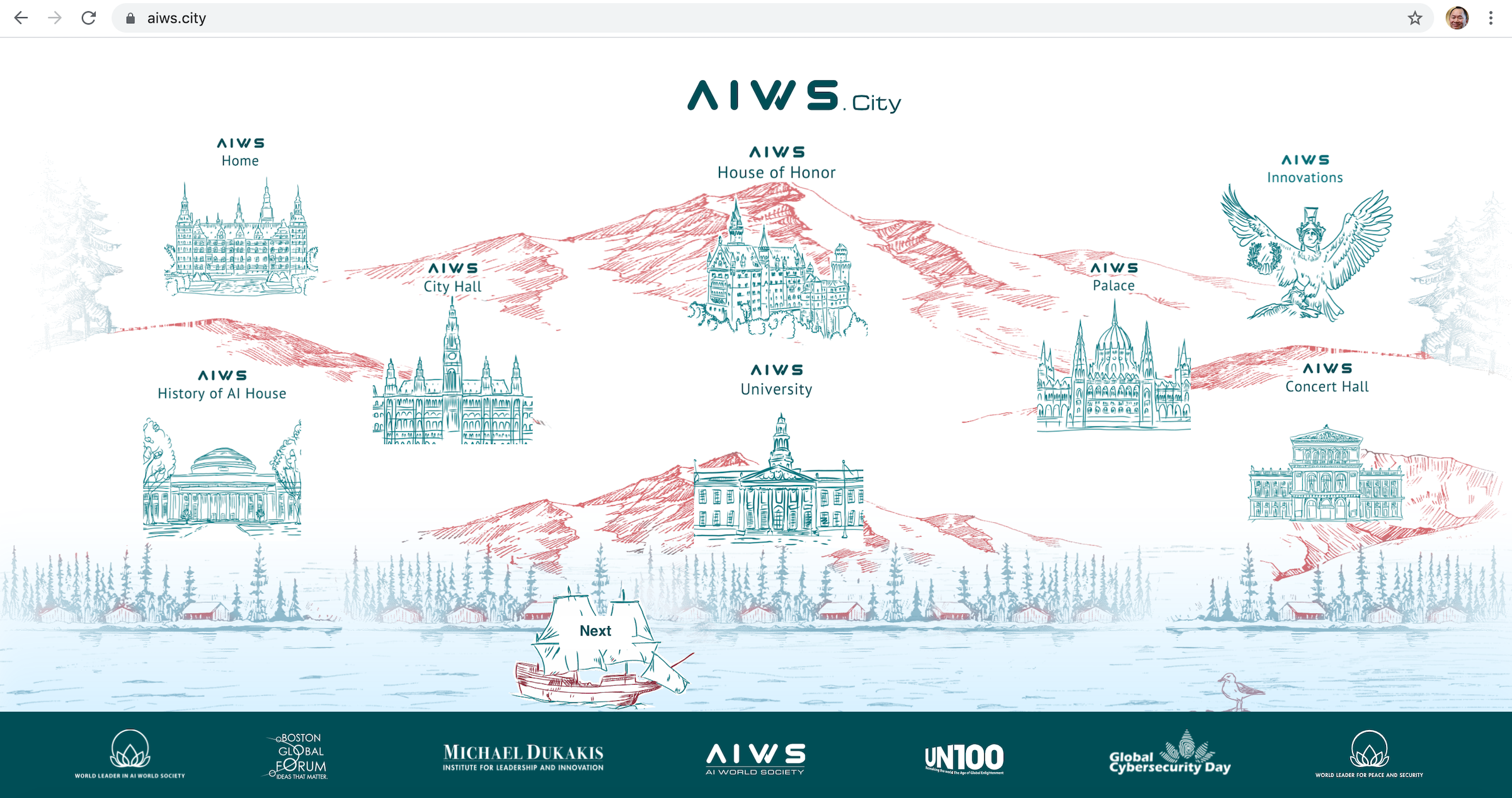
by Editor | Jul 5, 2021 | Publications
Apply AIWS Ecosystem at AIWS City: A Model for the Digital Age
Nguyen Anh Tuan
The Digital and AI Age is remaking the world. The issue is whether that remaking will serve the common good. Judging from history, it is a mistake to assume that such an outcome will occur without empowering ordinary citizens. The Artificial Intelligence World Society (AIWS) is such an effort.
In this article, I discuss the need to empower citizens and the steps required to achieve that goal. The article concludes with a discussion of AIWS City, which is a digital city being created as a model for how ordinary people can be empowered in the Digital and AI Age.
The Goal of AIWS
AIWS seeks to create an AIWS Ecosystem that empowers citizens to create value for themselves, for others, and for society through the application of artificial intelligence, digital, blockchain, and data science technologies. It is a sharing ecosystem that rewards both the creators and users of these technologies, as well as an ecosystem that encourages everyone to innovate. It breaks down the hierarchies that traditionally have created unequal power relationships, paving the way to a sharing society. It recognizes the value of every citizen, as well as every citizen’s creative potential. It seeks to promote citizens’ economic wellbeing while also promoting ethical and community values. It aims for nothing less than the creation of a more trusting, prosperous, and compassionate world where people can live more fulfilling lives, materially and ethically.
The foundation of AIWS is the Social Contract for the Artificial Intelligence Age, which was developed by the Boston Global Forum in consultation with leading thinkers and practitioners. The Social Contract has been endorsed by organizations, including The World Leadership Alliance – Club de Madrid, which is the organization of former heads of state and heads of government of democratic countries.
As with earlier social contracts, the Social Contract for the Artificial Intelligence Age is rooted in the rights and interests of individuals, and what governments and other entities must do and are prohibited from doing to safeguard these rights and interests. The AI Social Contract and AIWS Ecosystem envision a world where everyone’s contribution is recognized and everyone has a right to education and ready access to information and technology, where no one is above the law, and where integrity, knowledge, creativity, and honesty are seen as key values in shaping policy and society. It envisions a world where governments adhere to basic values and are accountable and transparent.
The AIWS Value System
Remaking the world as a more humane, peaceful, and secure place rests on promoting the values that will foster that world. To that end, AIWS has created the AIWS Value System as a means of guiding and encouraging individuals to contribute to a changing world.
The AIWS Value System focuses on creative or innovative acts that foster a sharing society. Such acts can take many forms but would include:
– Creation or promotion of innovative ideas and organizations that offer meaningful paths for people’s political, social, economic, or moral development
– Creation or invention of technological advances that improve the lives of ordinary people
– Innovative approaches to art, culture, sport, or entertainment that improve the quality of life for ordinary people
– Voluntary acts – everything from charitable contributions to the granting of access to data – that enhance the lives of ordinary people
– Acts that promote the values inherent in the Social Contract for the Age of Artificial Intelligence
As these examples indicate, the AIWS Value System centers on action designed to help ordinary people and that contributes to the building of a sharing society.
Promoting the AIWS Value System
The AIWS Value System recognizes acts that often take place in the absence of supportive mechanisms. Yet, the creation of such mechanisms can incentivize and facilitate acts of this kind. To this end, AIWS is:
– creating the Global Enlightenment Education Program. This program will aim to inform ordinary citizens about the world in which they live, and how they can help improve it. The program will be dedicated to lifelong learning and the fostering of views that will enable ordinary citizens to be more innovative, tolerant, and participatory. The program will place special emphasis on reaching people in more remote areas who are typically left behind by technological change. The program will also emphasize the contribution that everyone, whatever their location or background, can make to the common good.
– promoting the development of legal systems that protect creativity and innovation and that respect the rights and interests of ordinary people.
– promoting creation of a cultural, social, economic, and political environment that encourages and rewards creativity and innovation; that respects the rights, interests, and abilities of ordinary people; that encourages popular participation in the creation of a more humane world; that rewards those individuals who make noteworthy creative and innovative contributions to the common good; and that recognizes those who, through ideas and action, make significant contributions to politics and society.
– promoting the development of technology systems that support creativity and innovation; that broaden participation by ordinary citizens; that contribute to the digital-age education of these citizens; that give ordinary citizens the means to directly create products and services; that foster meaningful work opportunities; that provide ordinary citizens with greater access to essential services, such as health care; and that suppress fraudulent and other harmful acts that injure ordinary citizens.
Test Model: AIWS City
The AIWS Value System is innovative and, as such, untested for its utility. AIWS will test the concept by creating the AIWS City, which will be a virtual digital city dedicated to promoting the values associated AIWS. We envision it as a community of scholars, innovators, leaders, and citizens dedicated to fostering thought, creativity, and ethical behavior.
The digital platform for AIWS City has been created and the first phase of the project will be launched on September 9, 2021. AIWS City has offices in Boston, Massachusetts (USA); Tokyo (Japan), and NovaWorld Phan Thiet, Ha Noi, and Nha Trang (Vietnam), with plans to expand to other locations at a later time.
AIWS City will include the following components:
– AIWS Home, which is the personal space of the “citizens” of AIWS City. Each citizen will have a “digital home” for their work, innovation, and entertainment. The digital home will have secure computing, data storage, and Cloud service, as well as access to data sets, software programs, and tech support.
– AIWS University, which is a digital-age university for lifelong learning. The university will focus on courses that help leaders, managers, and students understand and apply digital technology, including Artificial Intelligence, cybersecurity, machine learning, and blockchain. It will also include courses designed to give individuals an understanding of the larger world of which they are a part. A signature feature of the university will be its course offerings in leadership, which emphasize ethical, compassionate, team-centered, and socially responsible leadership in the Digital Age.
– AIWS Global Enlightenment Education Program, which was described earlier in this article. Citizens of AIWS City will receive a daily bulletin with information and ideas that can enhance their global understanding and enrich their personal lives.
– AIWS Forum, which will feature lectures by the world’s leading digital thinkers – scholars, innovators, philanthropists, political leaders, artists, and corporate executives. There will also be seminars and discussion groups designed to bring together communities of interest. This Forum will promote AIWS Ecosystem and AIWS Value System.
– AIWS Vint Cerf Museum of the Internet, which is named after Vint Cert, who is “the father of the Internet” and a frequent contributor to the Boston Global Forum and AIWS. The museum will be interactive and trace the history of the Internet, including the contributions of Vint Cerf and other major figures in the Internet’s development.
– AIWS History of AI House, which will display the history of AI and serve as a venue for deliberation on issues relating to AI.
– AIWS Market, which will feature products and services that promote a healthy, ethical, and productive lifestyle. The market will also serve as a small business incubator, assisting these businesses in building their brand and entering the digital market. The market will support the sale of creative and innovative products and services that promote the common good.
– AIWS College Preparatory Academy, which will assist students from developing countries to prepare for and gain admission to high-quality colleges and universities.
– AIWS Innovation Hub, which will serve as an incubator to help firms, inventors, innovators, and entrepreneurs turn their ideas into reality. They will be able to discuss their ideas and problems and hear from experts and practitioners on how to advance or solve them. The Innovation Hub will promote pioneering models that foster social responsibility and will reward their developers through the AIWS Rewards Program.
-AIWS Window on the World, which will provide AIWS citizens with virtual tours of the world’s great museums, concert halls, palaces, public buildings, stadiums, ancient ruins, landmark buildings, and natural wonders. And it will give them opportunities to interact with creative individuals from these venues.
AIWS Rewards Program, which will be an experimental program to test the feasibility of a value marketplace – a mechanism through which societal contributions can be exchanged for goods and services. Based on a cryptocurrency (Crypto-AIWS-Rewards), the program will seek to help reformers, innovators, artists, and others who contribute to human progress but who typically do not receive commensurate material benefits.
Remaking the World Requires Reimagining It
The great question of the Digital and AI Age is not technological in nature. Rather it is the question of what type of society we seek to create through the application of digital technology.
The digital and AI revolution and trailblazing ideas will reshape the world. Like previous industrial revolutions, it will have a transformative effect on the way we live and relate to each other. Like the others, it will be disruptive. Some business sectors will wither, while others will thrive. That is true also of people. With the other revolutions, the outcome was determined almost entirely by market forces, which worked primarily to the benefit of the powerful, typically at a significant cost to ordinary people.
AIWS seeks to ensure that the historical pattern does not become a defining feature of the Digital and AI Age. AIWS is a reimagined world, one where the rights and interests of ordinary citizens are paramount and where action is taken to empower them in ways that enlarge their voice and influence and that give them the agency to help shape a new world. AIWS recognizes that this reimagined world will require concerted action by governments, individuals, organizations, and firms. Each must be a source of innovation, and each must adhere to AIWS standards and values. Together, we can remake the world and usher in an Age of Global Enlightenment.
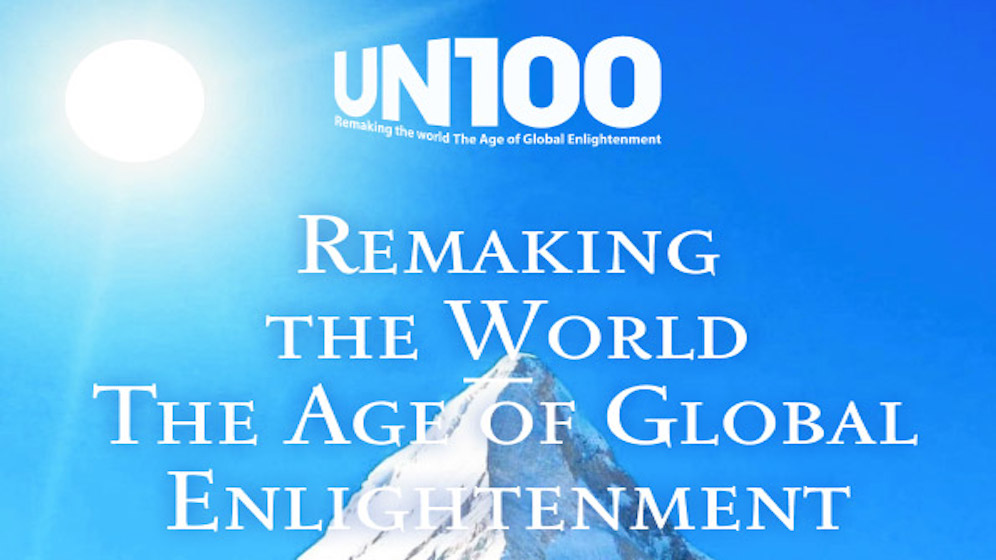
by Editor BGF | Jun 30, 2021 | Uncategorized

Boston – New York, July 1, 2021
Today, July 1, 2021, the book “Remaking the World – The Age of Global Enlightenment” is officially delivered. This book is a collaboration between the Boston Global Forum (BGF) and the United Nations Academic Impact (UNAI) as a part of the United Nations Centennial Initiative. The official announcement of the book was organized on May 27, 2021.
The book proposes pathways toward a more humane, peaceful, and secure world, largely by harnessing the potential of Artificial Intelligence (AI), blockchain, and other Digital Age technologies. A key proposal is the adoption of an AI International Accord that would bind nations to constructive uses of AI and prohibit destructive uses. The book proposes a Social Contract for the AI Age as the theoretical and ethical foundation of the Accord. The book also proposes the AI World Society (AIWS) as a vehicle through which individuals and civic organizations can help foster an Age of Global Enlightenment.
AIWS seeks to create an AIWS Ecosystem that empowers citizens to create value for themselves, for others, and for society through the application of artificial intelligence, digital, blockchain, and data science technologies. It is a sharing ecosystem that rewards both the creators and users of these technologies, as well as an ecosystem that encourages innovation. It breaks down the hierarchies that traditionally have created unequal power relationships, paving the way to a sharing society. It recognizes the value of every citizen, as well as every citizen’s creative potential.
Governor Michael Dukakis, Co-founder and Chair of Boston Global Forum, states that “the book is significant contribution of BGF and UNAI to shape peace, security, and prosperous world in the AI and Digital Age. Thank Editor Nguyen Anh Tuan for his excellent work for this book and the United Nations Centennial Initiative as well as AI World Society (AIWS).”
Ramu Damodaran, Chief of the United Nations Academic Impact and Co-Chair of the United Nations Centennial Initiative, said on the May 27, 2021, book launching event, “The United Nations Academic Impact is proud to join the Boston Global Forum in an initiative that looks to the 2045 centennial as an opportunity to reframe the possibilities inherent in the United Nations while remaining true to the power of its promise a century earlier.”
Nguyen Anh Tuan, CEO of Boston Global Forum and also a driving force in this initiative, expresses that “This path will require concerted action by governments, individuals, organizations, and firms. Each must be a source of innovation, and each must adhere to AIWS standards and values. Together, we can remake the world and usher in an Age of Global Enlightenment. I am grateful to the leaders and thinkers whose ideas inform the book. A special thank you is due to Ramu Damodaran for his support of the book project; Governor Michael Dukakis, who heads the Boston Global Forum and has inspired much of my work”.
Professor Alex Sandy Pentland, contributing two chapters of this book, said “Perhaps the main force driving the deployment of interledger technology is the need to repair the world’s tattered finances. This suggests that a new “Bretton Woods” multilateral effort is required, with the goal of establishing interfaces, methods, and exchange standards for digital transaction platforms.”
Distinguished contributors to the book include:
- Shinzo Abe, Prime Minister of Japan
- Ash Carter, Former US Secretary of Defense
- Vint Cerf, “Father of the Internet”, Google
- Nazli Choucri, Massachusetts Institute of Technology (MIT)
- Ramu Damodaran, Chief of United Nations Academic Impact
- Michael Dukakis, Former Governor of Massachusetts, Chair, Boston Global Forum
- Eva Kaili, Member of the European Parliament
- Robin Kelly, U.S. Representative (Illinois),
- Ban Ki-moon, the United Nations Secretary-General
- Didzis Kļaviņš, University of Latvia
- Taro Kono, Defense Minister, Japan
- Zlatko Lagumdzija, Former Prime Minister, Bosnia & Herzegovina
- Stavros Lambrinidis, EU Ambassador to the United States
- Ursula von der Leyen, President of European Commission
- Yasuhide Nakayama, Defense State Minister, Japan
- Paul Nemitz, Principal Advisor, European Commission
- Nguyen Anh Tuan, CEO, Boston Global Forum
- Andreas Norlén, Speaker, Swedish Parliament
- Joseph Nye, Harvard University
- Zaneta Ozolina, University of Latvia, Co-Chair of Riga Conference
- Thomas Patterson, Harvard University
- Judea Pearl, University of California, Los Angeles (UCLA)
- Alex “Sandy” Pentland, Massachusetts Institute of Technology (MIT)
- Sir Iain Duncan Smith, MP, UK Parliament
- Vaira Vike-Freiberga, President of World Leadership Alliance-Club de Madrid, Former President of Latvia
The book is free to download from July 15, 2021, at https://un100.net/books-un/
or at https://bostonglobalforum.org/bgf2022/publications/ai-world-society/
or send email to [email protected]
About
The United Nations Academic Impact (UNAI) is an initiative of the United Nations that aligns institutions of higher education with the United Nations in supporting and contributing to the realization of United Nations goals and mandates, including the promotion and protection of human rights, access to education, sustainability and conflict resolution.
Since 2010, UNAI has created a vibrant and diverse network of students, academics, scientists, researchers, think tanks, institutions of higher education, continuing education and educational associations. There are over 1400 member institutions in more than 147 countries that reach over 25 million people in the education and research sectors around the world representing a global diversity of regions and a thematic wealth of disciplines.
The Boston Global Forum (BGF) Boston Global Forum (BGF), based in Boston, Massachusetts, was founded to bring together thought leaders and experts from around the globe to participate in open public forums to discuss and solve the most critical issues affecting the world. BGF counts on the important engagement of political leaders, innovators, and top academics from Harvard, MIT and AIWS.net in the development of its work. Some of its most significant Initiatives are the Social Contract for the AI Age, the AIWS City (AIWS.city), and the AI Social Contract Index.
The United Nations Centennial Initiative is an initiative of United Nations Academic Impact that belongs to the United Nations with collaboration by the Boston Global Forum.
The United Nations Centennial include roundtables, ideas, concepts, solutions, essays, and reflections looking ahead to the global landscape in 2045, when the United Nations completes its first centenary, in areas of these technologies, including artificial intelligence, cyber security and weapons systems, among others. Such a compilation which looks both to the horizon ahead and the role of the United Nations in making it beneficial and secure, would be timely.
CONTACTS
Editors and Reporters please contact Mr. Tuan Anh Nguyen, Editor of the book “Remaking the World – The Age of Global Enlightenment”, Co-founder and Chief Executive Officer of The Boston Global Forum: [email protected], Tel., Viber, Whatsapp: +1 617 286 6589
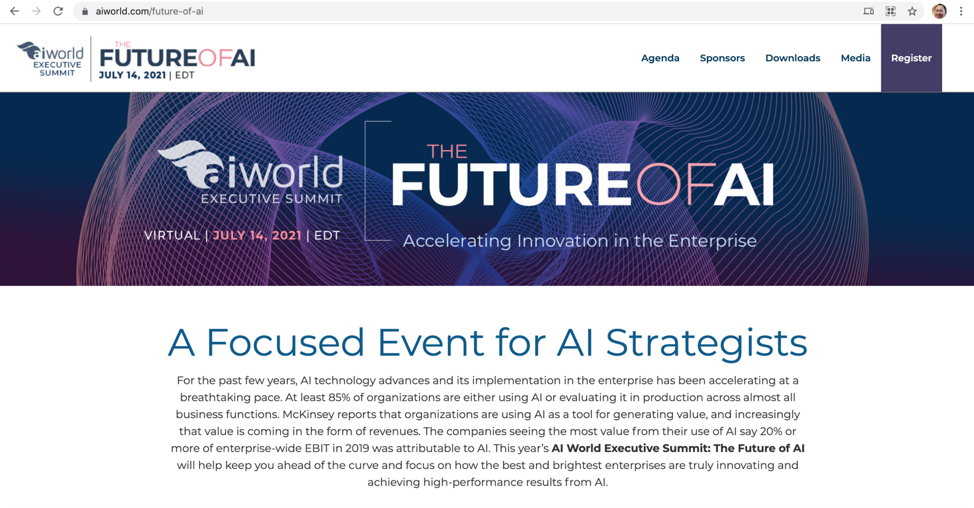
by Editor | Jun 27, 2021 | Event Updates
July 14, 2021, 2:40 PM – 3:15 PM EDT
EXECUTIVE ROUNDTABLE: Vision for the AI Age through 2045
Our distinguished panel and co-authors will debate and present a vision of an all-digital virtual city based on trusted open data. This presentation will summarize the standards and research developed by these experts and delivered in a series of reports to the United Nations on behalf of the AI World Society of the Boston Global Forum. The series of reports have been published and presented to the U.N. in the last year and half, and includes specific plans covering:
Social Contract for the AI Age
- People Centered Economy
- Trustworthy Economy
- Intellectual Society, a Thoughtful Civil Society, and
- AI Government
- AIWS City
- Thomas Patterson, PhD, Research Director, The Michael Dukakis Institute for Leadership and Innovation; Professor of Government and the Press, Harvard Kennedy School; President, AIWS University
- Panelists:
- Vint Cerf, Father of the Internet, Chief Internet Evangelist, Google
-
- Michael Dukakis, Governor; Co-Founder and Chair, AI World Society (AIWS); Boston Global Forum
-
- Ramu Damodaran, Chief, United Nations Academic Impact, United Nations; Editor in Chief, United Nations Chronicle Magazine
AI World Executive Summit focus on AI Strategists
For the past few years, AI technology advances and its implementation in the enterprise has been accelerating at a breathtaking pace. At least 85% of organizations are either using AI or evaluating it in production across almost all business functions. McKinsey reports that organizations are using AI as a tool for generating value, and increasingly that value is coming in the form of revenues. The companies seeing the most value from their use of AI say 20% or more of enterprise-wide EBIT in 2019 was attributable to AI. This year’s AI World Executive Summit: The Future of AI will help keep you ahead of the curve and focus on how the best and brightest enterprises are truly innovating and achieving high-performance results from AI.
Link:
https://aiworld.com/future-of-ai
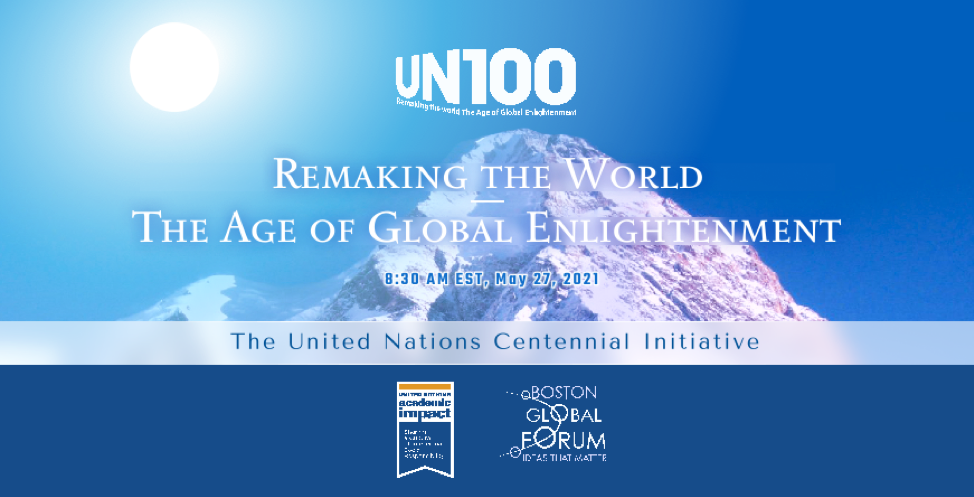
by Editor | Jun 27, 2021 | News
Nazli Choucri, Professor of Political Science (MIT) and co-author of Social Contract for the AI Age, contributes to the book Remaking the world – The Age of Global Enlightenment.
She wrote about the Framework for AI International Accord; some notes are here below:
Consistent with the principles the provisions of the Budapest Convention on Cybercrime as well as the EU General Directives, and respecting the Social Contract for the AI Age, the AIIA draft framework is conceived and designed as: 10
- A multi-stakeholder, consensus-based international agreement to establish common policy and practice in development, use, implementation and applications of AI
- Anchored in the balance of influence and responsibility among governments, businesses, civil society, individuals, and other entities.
- Respectful of national authority and international commitments and requires assurances of rights and responsibilities for all participants and decision-entities.
To consolidate the design into a formal International Accord, it is essential to:
- Review legal frameworks for AI at various levels of aggregation to identify elements essential for an international AI legal framework.
- Recognize methods to prevent abuses by governments and businesses in uses of AI, Data, Digital Technology, and Cyberspace (including attacks on companies, organizations, and individuals, and other venues of the Internet)
- Consolidate working norms to manage all aspects of AI innovations, and
- Construct and enable response-systems for violations of rights and responsibilities associated with the development, design, applications, or implementation of AI



by Editor | Jun 27, 2021 | Publications
Ramu Damodaran, Chief of the United Nations Academic Impact
New York, May 26, 2021
I must have been in the eighth grade when our high school teacher, Father Pat Rebeiro, introduced us to the distinction between culture and civilization which the French author Amaury de Riencourt had put forward some years earlier, in which he expanded upon the idea put forward by Oswald Spengler earlier in The Decline of the West that, as Ben Espen has paraphrased it, “civilization is the “late” phase in a society’s life. It follows the period of “Culture,” when society creates its characteristic science, religion, art, and politics. “Espen goes on to suggest that “culture is pioneering, aesthetic, and fertile. Civilization is sterile, extensive, practical, and ethical.”
Riencourt wrote in the 1950s, shortly before Sputnik bridged our inner and outer worlds, and before the extraordinary demonstrations of a world resurgent, a world “pioneering, aesthetic and fertile” demonstrated the futility of demarcating cultures and civilizations by national or continental boundaries. Migration, the ease of collaborative research beyond the physical proximity of the researchers, and the unexpected fertility of foreign lands to greatnesses once thought indigenous to a specific national home, have allowed us a world whose civilizational moulding and moorings constantly yield a chorus, a confluence, and, indeed, a co-mingling, of cultures. Where, in this excitement and effervescence, does artificial intelligence (AI) fit in?
A good point to begin that reflection is the assertion by Governor Michael Dukakis of the character of AI, the absence of its applicability to the “too many judgments you have to make in this world that involve values, ethics and morality.” As bedrock principles, these would appear civilizational in character, the enduring geology which cultures infused but never supplanted, cultures which by the very being of their energy and spontaneity could well ignore, go beyond, reinvent —-or, yes, conform to —- values, ethics and morality. Speaking in Ho Chi Minh city (HCMH) two years ago, Ousmane Dione, World Bank Country Director for Vietnam, noted that while “ AI mimics how the brain works “, there were three key factors to measure the possibilities of its successful use in that historic city ; “setting clear and realistic expectations for where and how AI can deliver for HCMC, ensuring that there is an enabling environment for AI to succeed in practice, especially when it comes to accessing and integrating the data needed to solve the city’s challenges and, finally, making sure that we understand and manage any key risks associated with AI.”
Within the cultural space, the most self-evident area of risk posed by AI is, as Baptiste Caramiaux has written, in the challenge by “AI-generated content to authorship, ownership and copyright infringement. New exclusive rights on datasets must be designed in order to better incentivise innovation and research.” That said, as he continues, “AI challenges the creative value-chain in two ways: shifting services performed by humans to algorithms and empowering the individual creator.” It is that empowerment that will, in my view, remain one of the two greatest possibilities for AI to enhance the individual, as much as global, cultural experience.
In 2016, Microsoft, with academic and corporate partners, launched the “Next Rembrandt” project which “imprinted the AI “with 346 of Rembrandt’s known works in the hopes that it could create a unique 3D printed image in his style. An algorithm measured the distances between the facial features in Rembrandt’s paintings and calculated them based on percentages. Next, the features were transformed, rotated, and scaled, then accurately placed within the frame of the face. Finally, we rendered the light based on gathered data in order to cast authentic shadows on each feature.” The cumulative result was a product that could well have been the final work by the storied artist of the Renaissance.
Using that illustration as metaphor, one can foresee the power and possibilities in AI to create cultural experiences beyond ready human capacity, through its innate strengths of recognition, selection and assimilation, experiences that can extend to the creative and performing arts, the auditory aspiration of recreated music (think of Beethoven’s nine symphonies being fashioned into his unwritten tenth; we have a precursor already in the 2019 venture in Linz, where a performance of Mahler’s unfinished tenth symphony was followed by a six minute software composition in his style ), or a syncretic architectural fantasy that echoes Egyptian pyramids as evocatively as it does the Angkor Wat in Cambodia. Here AI is an enhancer of, and not a threat to, human enjoyment.
Corollary to this is the expansion the judicious use of AI will afford the culturally creative individual; even if its mimicking of the human brain will not allow it to become the brain itself, and happily not, it can through that process of inference and imitation address many of the more mundane aspects of the creativity while also suggesting options and possibilities for the original human brain to explore.
The cofounding by Governor Michael Dukakis and Nguyen Anh Tuan of the Boston Global Forum (BGF) of the “Artificial Intelligence World Society” (AIWS) launched “a project that aims to bring scientists, academics, government officials and industry leaders together to keep AI a benign force serving humanity’s best interests.” The idea of an AIWS would strike a particular chord for the United Nations which had looked at the idea of a “world society” in its very first years with UNESCO’s encouragement of “teaching about the United Nations and its specialized agencies since, together, these form the greatest contemporary effort, on an international, governmental scale, to move towards a world society. A booklet including some suggestions for teaching programs on the United Nations in the schools of Member States…was considered…at the UNESCO seminar at Adelphi College, New York.”
“World society” is an elegant phrase that has not acquired the reiteration it deserves; I was reminded of it when reading an article by Robert A. Scott, President Emeritus of Adelphi, where he writes “One of the most important goals of education is to learn how to reflect, how to learn from our experiences. An early experience that has stayed with me was finding small wooden signs along the paths of the camp I attended when nine years old. The signs were about three inches by seven inches and had the word “Others” carved into the wood. They were intended to inspire those walking the paths to be considerate of others, welcome others, and listen to others, no matter what their station in life. Others. Respect others. Listen to others, no matter what their station. Reflect on what they say. It may help solve a problem you never thought about.”
Those last four words point to the second possibility I sense in the power of AI to enhance the individual, to allow her the possibility to summon experiences untested and untasted from the moorings of the felt and familiar, to find in the ‘others’ that Bob Scott mentioned, ourselves. Much as the often irritating pop up advertisements that promise “if you like that you will love this”, AI can, with the voluntary consent of the online seeker, bring to the proximity of her desk or lap beauties unexplored with a confidence in their appeal that only objective algorithmical analysis can assure. And making distant cultures proximate, seeing their evanescent echoes in one’s own, is the essence of a world society.
The truth that such a society ought to be both a physical and a spiritual concept is reflected in what BGF describes as a “sophisticated pioneer model: a combination of the virtual, digital AIWS City and a real city”, the model being Phan Thiet in Viet Nam, developed by the Nova Group in that country whose Chairman, Bui Thanh Nhon, described it as “ the place for the World Leadership Alliance-Club de Madrid and the Michael Dukakis Institute to hold important annual events marked by the theme of ‘Building a New Economy’ for the world in the digital and artificial intelligence era, a venue to announce new achievements in the history of artificial intelligence and the digital economy.” It is critical to acknowledge the cultural dimension to the “new economy” through the creative sector, so much of its component cultural; as UNESCO notes, it generates “annual revenues of US$2,250 billion and global exports of over US$250 billion. According to recent forecasts, these sectors will represent around 10% of global GDP in the years to come.”
Speaking at the Riga Conference 2019 in Latvia, Tuan referred to the “need for a new social contract, one that is suited to a world of artificial intelligence, big data, and high-speed computation and that will protect the rights and interests of citizens individually and society generally. A fundamental assumption of the social contract is that the five centres of power – government, citizens, business firms, civil society organizations, and AI assistants – are interconnected and each needs to check and balance the power of the others. Citizens should have access to education pertaining to the use and impact of AI,” a thought reflective of what Governor Dukakis said at a BGF March event, of the possibilities of “new ideas, initiatives, and solutions by thinkers and creators in an effort to build a civilized, prosperous, peaceful, and happy world,” ‘creators’ an apt term to define those who say their skills and talent enhanced, and not threatened by, AI.
Forty years ago, Carl Sagan wrote: “What an astonishing thing a book is. It’s a flat object made from a tree with flexible parts on which are imprinted lots of funny dark squiggles. But one glance at it and you’re inside the mind of another person, maybe somebody dead for thousands of years. Across the millennia, an author is speaking clearly and silently inside your head, directly to you. Writing is perhaps the greatest of human inventions, binding together people who never knew each other, citizens of distant epochs. Books break the shackles of time. A book is proof that humans are capable of working magic.”
AI has taken that proof a step further, affirming in the process the linear connection between human capability and magic, affirming that magic would not find itself possible of realization without the humans that shaped it, extending inexorably and wondrously the pledge in the United Nations charter to the “dignity and worth of the human person” whose measure only the human person herself, through innovation, experiment and daring, can expand.
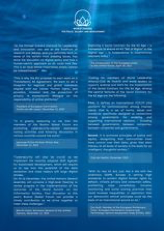
by Editor | Jun 20, 2021 | Event Updates
World leaders contributed content toward the book “Remaking the World – The Age of Global Enlightenment,” below are some of them in the backcover of the book:
“At the Michael Dukakis Institute for Leadership and Innovation, you are at the forefront of research and debate. And you definitely work on some of the world’s most pressing issues. You drive the discussion on digital policy and how a human-centric approach on AI could look like. This is an issue whose importance simply cannot be overestimated.”
“This is why the EU proposes to start work on a Transatlantic AI Agreement. We want to set a blueprint for regional and global standards aligned with our values: Human rights, and pluralism, inclusion and the protection of privacy. A transatlantic dialogue on the responsibility of online platforms!”
President of European Commission Ursula von der Leyen, December 12, 2020
“It is greatly reassuring to me that the members of the Boston Global Forum are promoting cybersecurity-related awareness raising activities and fostering discussions in various countries around the world.”
Japanese Prime Minister Shinzo Abe, December 12, 2015
“Cybersecurity will also be crucial as we implement the recently adopted 2030 Agenda for Sustainable Development, which will require us to tap into the potential of the data revolution and close today’s still-large digital divides.
On 15-16 December, the United Nations General Assembly will convene a High-level Meeting to review progress in the implementation of the outcomes of the World Summit on the Information Society. Your discussion at this year’s Boston Global Forum can provide a timely contribution as we strive together to meet these challenges.”
Ban Ki-moon, Secretary General of the United Nations, December 12, 2015
“Exploring a Social Contract for the AI Age – a framework to ensure an AI “Bill of Rights” in the digital age – is fundamental in international relations today.”
The Ambassador of the European Union to the United States, April 28, 2021
“Calling for members of World Leadership Alliance-Club de Madrid and world leaders to support, endorse and work for the implantation of the Social Contract for the AI Age. Among the central features of the Social Contract for the AI Age are the following:
First, it defines an international TCP/IP (the platform for communication among internet users), that is, a set of norms, values and standards specifically designed as connections among governments for enabling and supporting international relations – including between governments, between companies, between companies and governments.
Second, it is anchored principles of justice and equity, recognizing that communities must have control over their data, given that data literacy at all levels of society is the basis for an intelligent, thoughtful society.”
Club de Madrid, December 2020
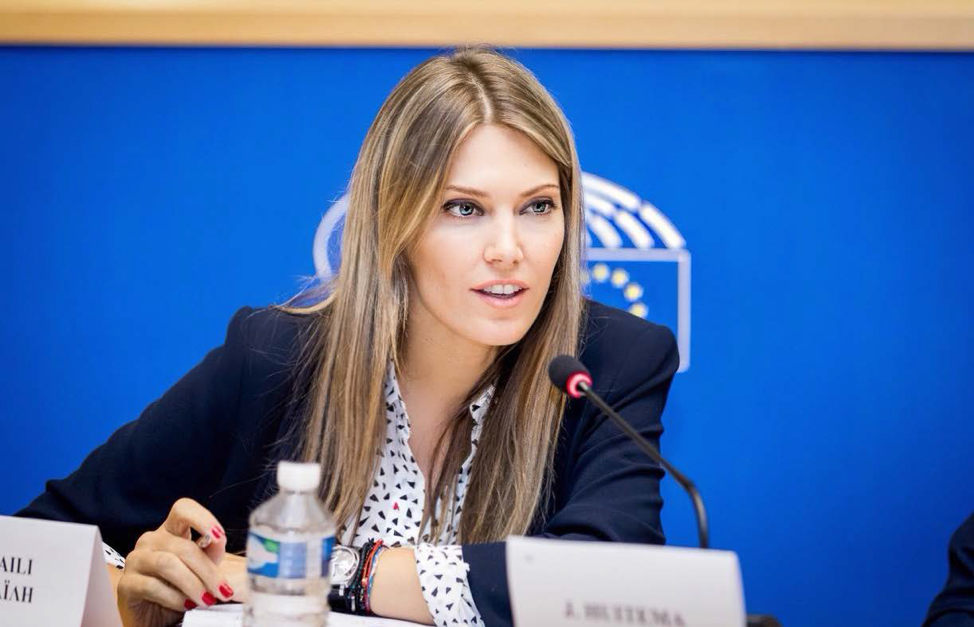
by Editor | Jun 20, 2021 | News
Eva Kaili, MEP and Chair of European Parliament’s Science and Technology Options Assessment body (STOA) and Center for Artificial Intelligence, contributed toward the discussion at the AI International Accord Committee:
The datafication of our societies, via the deployment of AI technologies, is transforming the world as we know it and has the power to challenge and dismantle the fundamentals of our democracy. The ongoing technological change far from being deterministic in its nature and effects, needs to be managed in a proactive and people-centric manner. A new social contract is needed to ensure that any multilateral attempt to shape an AI governance framework is inclusive, trustworthy and will enable the net benefits of digital automation and autonomy to be realized and more widely shared. The European Union as an example of a supranational social contract, can serve as a source of policy inspiration for framing a sustainable, democratic and fair AI. With its new AI Act, just like it did with the ambitious GDPR, Europe is setting high standards to protect digital human rights by default, citizens privacy and consumers safety, prohibiting mass surveillance, intrusive monitoring and social scoring practices that could increase inequalities, in aspiration that our democratic ethical principles could be the basis of an international accord on AI.
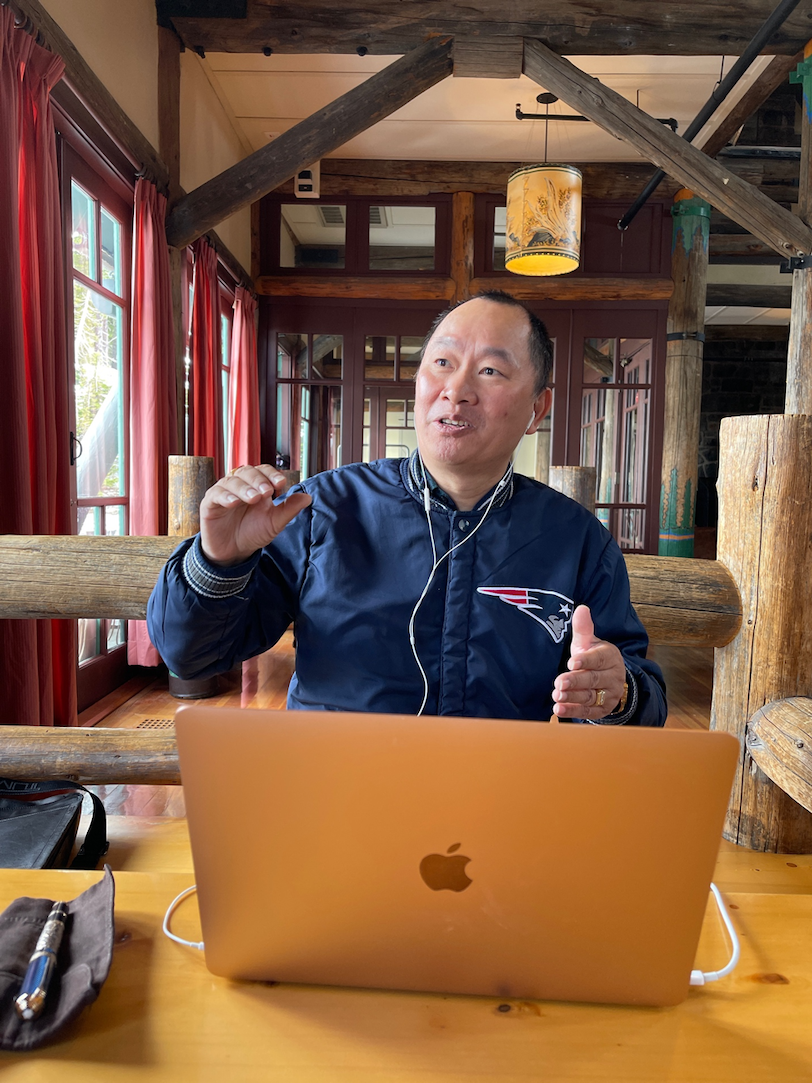
by Editor | Jun 13, 2021 | News
Mr. Nguyen Anh Tuan, CEO of the Boston Global Forum, presented AIWS City, AIWS Values, and the United Nations Centennial Initiative at the Horais Global Meeting on June 8, 2021 on the Panel “Envisioning Post-pandemic Smart Cities.”
Here are his key messages:
The AIWS innovative economic-political ecosystem is an ecosystem which encourages and helps all citizens to optimize their creativity and capacity development together to build up standards of values and living culture, a good humanistic living environment with kindness and truthfulness from which honest and kind visionaries, who can contribute to creating new thinking and new culture, can be recognized and have fulfilling lives both materially and spiritually, and have the opportunities to become governmental and social leaders. The AIWS Ecosystem is the Boston Global Forum’s tribute to the United Nations Centennial Initiative.
AIWS Creative Value System
Noble creative values, valued in the following order:
- To create and develop innovative organizations, ideas, and socio-political theories, which are meaningful, legal, logical, and could produce new paths for social development
- To guide organizations to implement socio-political initiatives.
- To create technology that better the life of people.
- To innovate arts and sports to improve the quality of life.
- To volunteer to help people and contribute data, information, and values as well as engage in charitable activities to building a better society according to the Social Contract for the Age of Artificial Intelligence standards.
Building AIWS City, a digital and virtual city as an experiment of the AIWS Global Innovation Ecosystem, including:
- AIWS value system: each citizen has an account as a digital house for creativity and exchange and trade their innovations.
- AIWS Global Creative Exchange.
Moderator: Sergio Fernandez de Cordova Executive Chairman, P3 Smart City Partners & PVBLIC Foundation
Panelists:
- Janice Kovach, President, NJ League of Municipalities; Mayor of Clinton NJ, USA
- Arun Amirtham, Chairman, 5 Elements Sustainable Development Group, Switzerland
- Tony Cho, Chief Executive Officer and Founder, Future of Cities, USA
- Joe Landon, Vice President, Lockheed Martin, USA
- Nguyen Anh Tuan, Chief Executive Officer, Boston Global Forum, USA
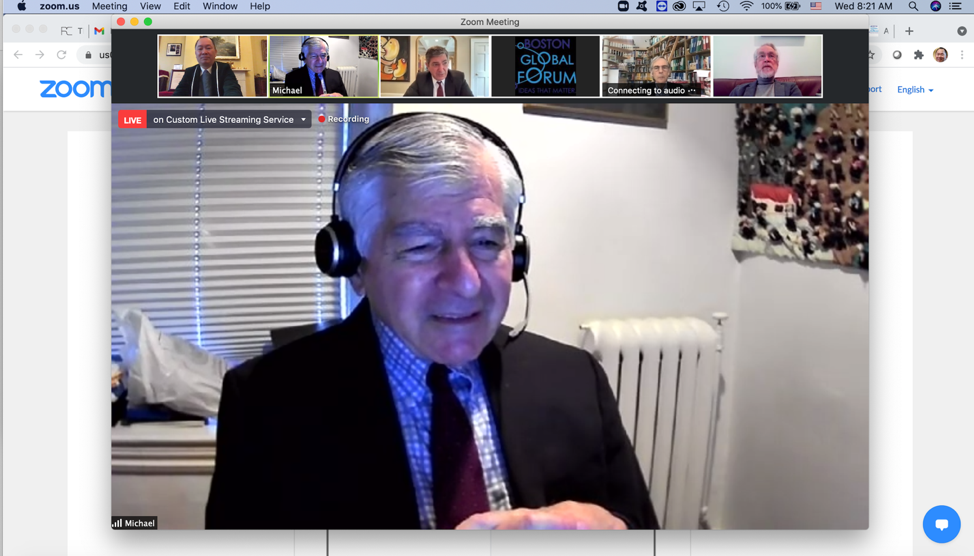
by Editor | Jun 13, 2021 | News
Moving into a new age of technological advancements brings promising potential to world society as Artificial Intelligence becomes a public good used to promote the better well-being of all people. But alongside the opportunities Artificial Intelligence and other technologies have to offer, we also face a threat from private and public entities who aim to exploit the use of these advancements abusing the rights of individuals and the rule of law. AI technologies raise concerns about security, privacy, and fairness in a democratic society.
This phenomenon is not just something we envision in the coming future, but already a practice today both in the public and private sphere.
In order to protect the rights, privacy, and security of all people, a monitoring system must be implemented to supervise actions that violate the rights and security of individuals in democratic values and keep abusers accountable for their actions. A monitor system is of great importance to create a safe environment where there is trust that private and public entities do not take control of personal data through the use of AI for their own means.
Those that misuse their power must face the penalties that come with non-compliance to the norms, standards, common values, and international laws as outlined in the Social Contract for the AI Age and Artificial Intelligence International Accords (AIIA).
Already, Freedom House and other organizations are in place to monitor policies and behaviors in other spheres, but they lack formal authority. The Michael Dukakis Institute can provide a monitoring system to the best of its ability, they must be well structured, staffed, and funded to ensure legitimacy and authority on their assessments and judgments.
The time to implement and support a monitoring system is now as entities already have the capability to infringe on the lives of millions in the world. The cooperation of governments, big corporations, and civil society is of most importance in this time of evolving advancements. Through the implementation of a monitoring system, we can ensure that fundamental human rights, the rule of law, and Social Contract for the AI Age, AI International Accord will be protected in the international community.











